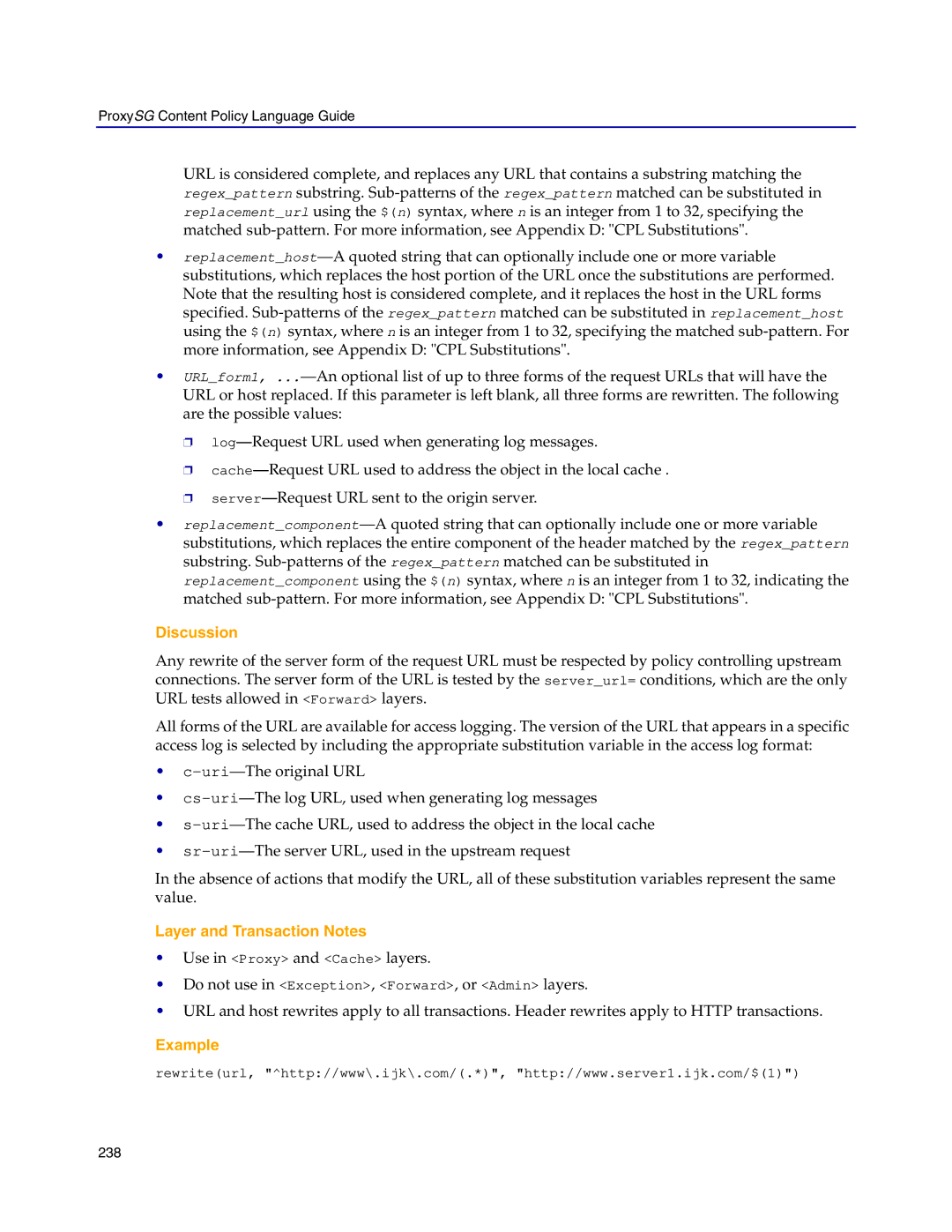URL is considered complete, and replaces any URL that contains a substring matching the regex_pattern substring. Sub-patterns of the regex_pattern matched can be substituted in replacement_url using the $(n) syntax, where n is an integer from 1 to 32, specifying the matched sub-pattern. For more information, see Appendix D: "CPL Substitutions".
•replacement_host—A quoted string that can optionally include one or more variable substitutions, which replaces the host portion of the URL once the substitutions are performed. Note that the resulting host is considered complete, and it replaces the host in the URL forms specified. Sub-patterns of the regex_pattern matched can be substituted in replacement_host using the $(n) syntax, where n is an integer from 1 to 32, specifying the matched sub-pattern. For more information, see Appendix D: "CPL Substitutions".
•URL_form1, ...—An optional list of up to three forms of the request URLs that will have the URL or host replaced. If this parameter is left blank, all three forms are rewritten. The following are the possible values:
❐log—Request URL used when generating log messages.
❐cache—Request URL used to address the object in the local cache .
❐server—Request URL sent to the origin server.
•replacement_component—A quoted string that can optionally include one or more variable substitutions, which replaces the entire component of the header matched by the regex_pattern substring. Sub-patterns of the regex_pattern matched can be substituted in replacement_component using the $(n) syntax, where n is an integer from 1 to 32, indicating the matched sub-pattern. For more information, see Appendix D: "CPL Substitutions".
Discussion
Any rewrite of the server form of the request URL must be respected by policy controlling upstream connections. The server form of the URL is tested by the server_url= conditions, which are the only URL tests allowed in <Forward> layers.
All forms of the URL are available for access logging. The version of the URL that appears in a specific access log is selected by including the appropriate substitution variable in the access log format:
•c-uri—The original URL
•cs-uri—The log URL, used when generating log messages
•s-uri—The cache URL, used to address the object in the local cache
•sr-uri—The server URL, used in the upstream request
In the absence of actions that modify the URL, all of these substitution variables represent the same value.
Layer and Transaction Notes
•Use in <Proxy> and <Cache> layers.
•Do not use in <Exception>, <Forward>, or <Admin> layers.
•URL and host rewrites apply to all transactions. Header rewrites apply to HTTP transactions.
Example
rewrite(url, "^http://www\.ijk\.com/(.*)", "http://www.server1.ijk.com/$(1)")
